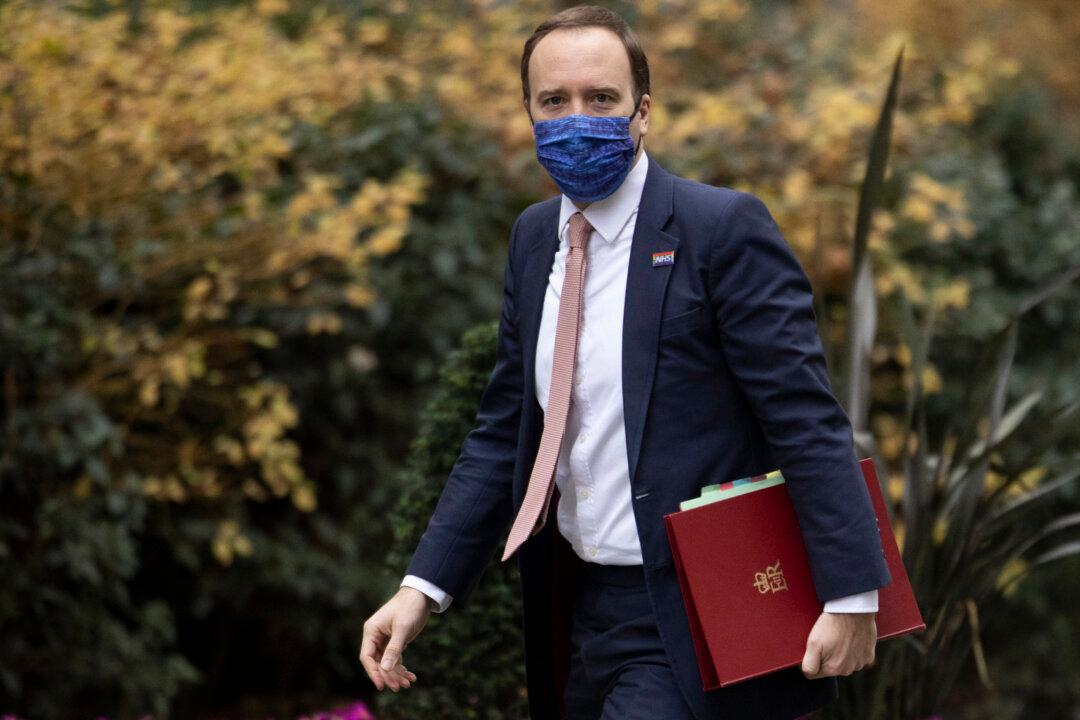The UK should be able to reopen on dates set out in the government’s roadmap out of the lockdown, Health Secretary Matt Hancock said.
Speaking at a televised CCP (Chinese Communist Party) virus briefing on Wednesday, the Health Secretary said: “The data show that we are essentially precisely on track for where we expected to be at this point and that is obviously good news.





